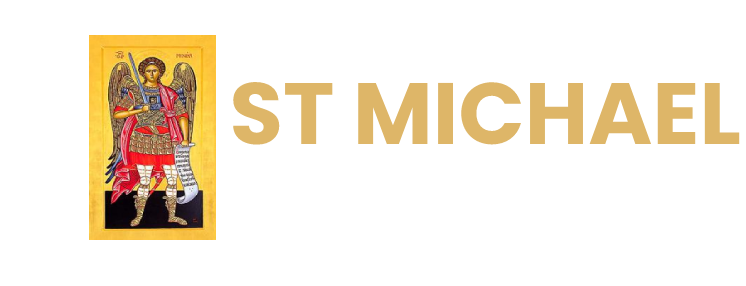Sermon – Sunday of the Cheesefare 2022
Pastoral Sermon
The Sunday of Forgiveness
March 6, 2022
Today’s Gospel lesson makes clear that God’s forgiveness is tied to our forgiveness of others. In other words, just as we are forgiven, we also understand that God’s forgiveness has been granted to all sinners. Forgiving those who sin against us is therefore expected of us. The Lord’s words uses the conditional “if” - If you forgive men their trespasses… and if you do not forgive… However, from God’s standpoint: Forgiveness is a fact. We have all been forgiven.
It would probably be helpful for us to think if it in this way: God’s forgiveness for you and me is of no consequence unless we personally know God’s love for us, accept His forgiveness; are willing to forgive ourselves and are also willing to forgive others. God’s forgiveness for you and me is of no consequence unless we partner with Him by desiring it for others, to the extent that we also make it a practice to forgive them.
We heard it clearly demonstrated in the Parable of the Prodigal Son two Sundays ago: We understood from the lesson that such a love and great mercy is something we know and experience because we have a conscience. Our struggle today is that we live in a time when many live their lives without much or any kind of conscience. Just about anything seems possible without facing any consequences. If you can make it happen there is very little stopping you from doing so! There are fewer boundaries today than we have ever known. Or, one could say, there are ways that you and I can more easily get out of things, especially if we have the means to do so.
However, last week, we were made aware that God’s love - that is freely and impartially given is also a “tough love.” It is not without ultimately facing “a day of judgment” (a day of reckoning) when you and I have to be accountable for our deeds and actions; accepting responsibility for ourselves.
In summary: The lessons of the “Pre-season of Great Lent,” beginning with the Sunday of the Publican and the Pharisee, the Sunday of the Prodigal Son, and the Sunday of the Last Judgment all call our attention to our actions and our willingness to make the right choices: a) willingness to choose humility (as did the Publican), b) willingness to act upon a good conscience in facing the truth honestly (as did the Prodigal Son), c) a willingness to serve others (“the least of our brethren”) and so discover Christ in our brother, and d) a willingness to forgive others as God Himself forgave us. That is surely a lot! And if we dare to even do one of these four: choosing humility (the starting place of all virtue), return home to our Heavenly Father, practice the good deeds of serving others, or initiating the forgiveness of someone, we will aim to make Great Lent a meaningful personal experience and not just an annual exercise or ritual.
Rather than going through the “rite of forgiveness” as a mere ritual, let’s take this day seriously, let us examine our consciences, let us choose to behave in a way that is becoming of being Christian believers. Let us not take lightly the church’s practice (Christ’s commandment) of forgiving others.
We can do the same about our practice of fasting. What do we find in the instruction of today’s epistle lesson? …When you fast… do not look dismal, like the hypocrites …that their fasting may be seen by men. The point is: Great Lent is not a time for “wearing our religion on our sleeve.”
Today’s lesson concludes: Do not lay up for yourselves treasures on earth… Anyone’s treasure is something they cherish, protect, defend, or consider very important. It is of a personal interest and has a personal value. It is what matters to you and me. Our Lord’s words are very simple and clear: Find out where one’s treasure is and there you will know what really matters to them. But for us is it all about spending our treasure on what we consider we rightly deserve? Is it about making the most of what we think that we’ve rightly earned? Or is it recognizing that God is the source of all things and we are only stewards of what He has mercifully provided us?
In his letter to the faithful, Patriarch JOHN X wrote these words: “Lent is a means to surrender (the hardness of the body) to God’s abundant mercies. Through fasting, our compulsive and impulsive acts are extricated from the soul, so we may experience the warmth of love. Lent is the queen of virtues inasmuch as we purify our souls and wash them with pure waters of repentance, so we may bring peace and love to others. Love is the summit of all treasures. Fasting is a true expression of love, and the best tool that enables us to remove the passions of animosity and pride, and sharpen the soul with charity and giving, and wash it with repentance and humility, so that the light of the resurrection of Christ may transfigure in it.
So as Patriarch JOHN suggests: think about fasting in terms of “being in love.” Being in love involves doing many things in ways that puts aside our physical appetite in order to prepare for being with one’s beloved. Our focus and attention is fixed upon the one we love. The result is: our devotion is made evident by the actions of many sacrifices. “Giving something up” becomes a very natural thing. In fact those things that are put aside are seen as inconsequential to the goal of being with the one we love. Insofar as Great Lent is concerned, the goal is: Christ and His Kingdom.



